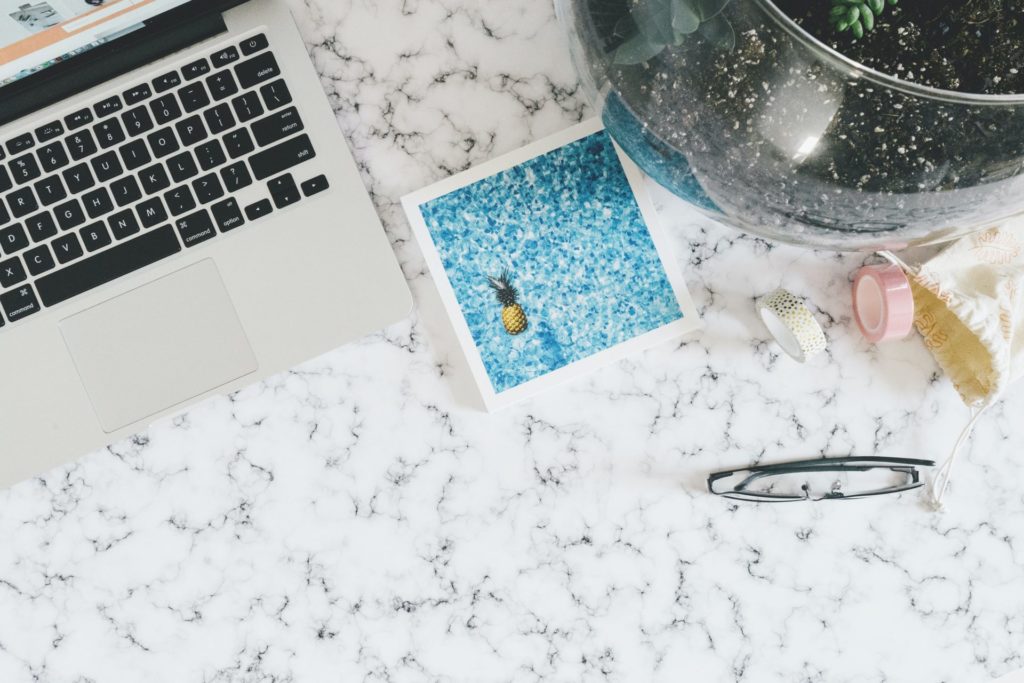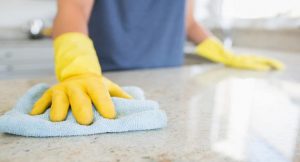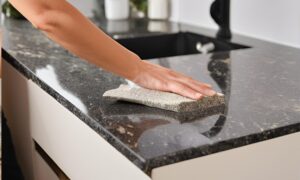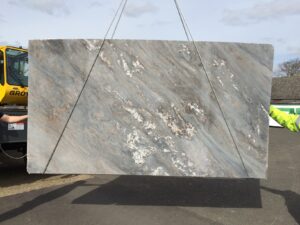Table of Contents
- How to avoid stains on Marble worktops
- What should I use to clean Marble Worktops?
- How to remove stains from Marble worktops
- What poses a staining risk to Marble?
- How to remove water stains on marble
- 1. Blot the Stain
- 2. Create a Paste
- 3. Apply the Paste
- 4. Cover and Let it Sit
- 5. Remove the Paste
- 6. Rinse and Dry
- 7. Polish and Seal
- How to remove tea stain on marble
- 1. Blot the Stain
- 2. Create a Gentle Cleaning Solution
- 3. Clean the Stained Area
- 4. Rinse with Clean Water
- 5. Dry the Marble
- 6. Polish and Seal
- Sealing your Marble
- Experienced Marble Experts
How to Remove Stains From Marble Worktops
Marble worktops are one of the most highly sought after amenities in a kitchen or bathroom. This versatile natural stone looks glamorous, and the array of colours and textures available means there’s a slab of marble for everyone’s tastes. Marble is a tough, durable stone but in a busy area of the house, such as the kitchen or bathroom, accidents can happen so it’s important to maintain your marble to keep it looking better, for longer.
Marble often comes with the misconception that maintenance is extensive, but the good news is this isn’t the case. At Surrey Marble and Granite, we have over 23 years of trading and 30 years of experience working with Marble and have learnt a few tips along the way, so our experts are here to help you understand the best ways to clean and maintain Marble in just a few easy steps.
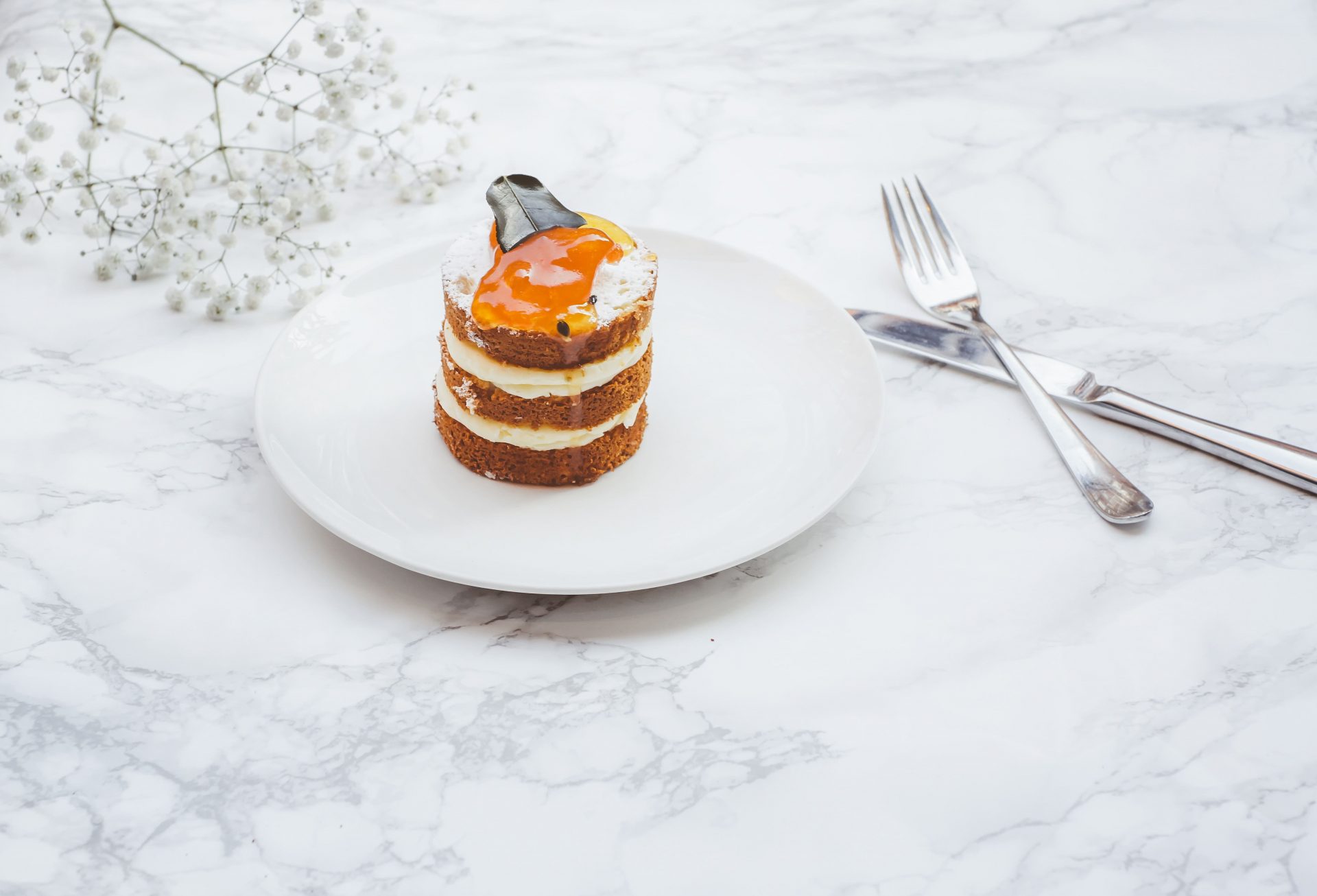
How to avoid stains on Marble worktops
Stains on Marble can be really frustrating, particularly if you’ve opted for a sleek white Marble design, but can be resolved easily if you act quickly. Follow our regime for how to avoid stains on Marble worktops:
- As soon as you see a spillage on your worktop, dab it up with a soft wet cloth, being careful not to spread it around.
- Using a simple cleaning solution, spray the surface and wipe it clean.
- Dry the area with a clean, dry soft cloth.
What should I use to clean Marble Worktops?
Harsh cleaners containing alcohol can cause permanent damage to the surface of the marble. Instead, we would recommend mixing some gentle dishwashing soap with water in a spray bottle for an easy, cheap cleaner.
How to remove stains from Marble worktops
If you are struggling with an existing stain, we would recommend the below solution for light-coloured Marble only.
Mix together 12% hydrogen peroxide with a few drops of ammonia and apply to the area with a cloth. Leave to act for a few seconds before rubbing it away with a damp, soft cloth. Thoroughly dry the area after use, as water left on marble can be damaging. If you are struggling to remove the stain, we would highly recommend contacting a professional Marble cleaner who will be able to clean your surface without damaging it.
What poses a staining risk to Marble?
- Tea and coffee
- Juice
- Vinegar
- Cola
- Wine
- Cooking oil
- Harsh household cleaners
Of course, these items are commonplace in the kitchen but by investing in a few items to protect your worktop, you can keep it looking new when avoiding stains on marble.
- Always use coasters for drinks to avoid the dreaded ring stains and act quickly to mop up any spillage.
- Never be tempted to chop directly onto the surface as this could cause damage to the worktop. Instead, invest in some bamboo chopping boards which will look stylish against the Marble.
- Trivets and placemats are ideal to lay hot pans and plates on, avoiding direct contact with your Marble Worktop.
By creating a habit of using these aids, you’ll protect your worktop and ensure it has a longer life.
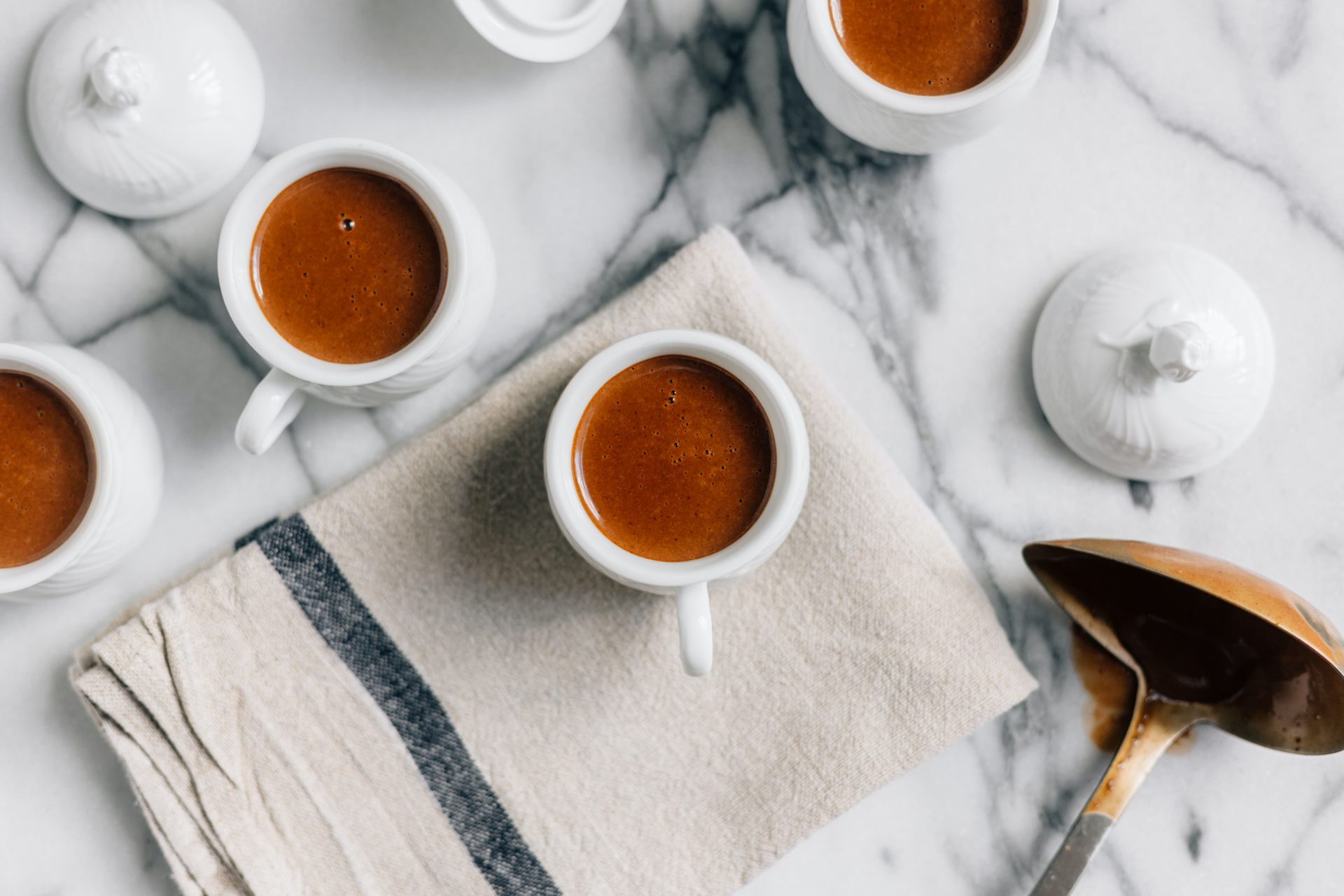
How to remove water stains on marble
To remove water stains on a marble worktop, follow these steps:
1. Blot the Stain
1. Blot the Stain
If the water stain is fresh, start by blotting the area with a clean, absorbent cloth or paper towel to remove any excess moisture. Do not rub the stain, as it may spread or worsen.
2. Create a Paste
Mix a poultice using baking soda and water. Gradually add water to the baking soda until it forms a thick paste with a consistency similar to toothpaste.
3. Apply the Paste
Spread the paste over the water stain, ensuring it covers the entire affected area. Use a plastic spatula or a non-abrasive cloth to apply the paste evenly.
4. Cover and Let it Sit
Cover the paste with plastic wrap to create a seal that prevents it from drying out. Allow the paste to sit on the stain for at least 24 hours. This time allows the poultice to draw out the water from the marble.
5. Remove the Paste
After the waiting period, remove the plastic wrap and gently scrape off the dried paste using a plastic spatula or a damp cloth. Be cautious not to scratch the marble surface.
6. Rinse and Dry
Thoroughly rinse the area with water to remove any residue from the paste. Use a clean, soft cloth to dry the marble worktop completely.
7. Polish and Seal
Once the stain is removed, you may notice a difference in the shine of the marble. To restore the lustre, use a marble polishing product specifically designed for countertops. Follow the manufacturer’s instructions for application. Additionally, consider sealing the marble worktop with a high-quality marble sealer to protect it from future stains.
It’s important to note that severe or stubborn water stains may require professional assistance or specialised marble cleaning products. If you’re unsure or hesitant about removing the stains yourself, it’s best to consult a professional stone restoration expert for guidance.
How to remove tea stain on marble
Simililiarly to removing water stains on a marble worktop, follow these steps to remove tea stain:
1. Blot the Stain
1. Blot the Stain
If the tea spill is fresh, immediately blot the area with a clean, absorbent cloth or paper towel to remove as much liquid as possible. Avoid rubbing the stain, as it may spread or cause further damage.
2. Create a Gentle Cleaning Solution
Mix a mild dish soap or pH-neutral cleaner with warm water. Use a small amount of the cleaning solution to avoid saturating the marble.
3. Clean the Stained Area
Dip a soft, non-abrasive cloth or sponge into the cleaning solution and gently dab the tea-stained area. Make sure to avoid scrubbing vigorously, as it can scratch the marble. Continue dabbing until the stain starts to lift.
4. Rinse with Clean Water
Once the tea stain is removed, rinse the marble surface thoroughly with clean water to remove any soap residue. Use a damp cloth or sponge to wipe away any remaining cleaning solution.
5. Dry the Marble
Use a soft, dry cloth to thoroughly dry the marble surface. Ensure that no moisture is left behind, as prolonged exposure to water can damage the marble.
6. Polish and Seal
If the tea stain has caused any loss of shine or dullness on the marble, you can restore its luster by using a marble polishing product specifically designed for countertops. Follow the manufacturer’s instructions for application. Additionally, consider applying a marble sealer to protect the surface from future stains.
It’s important to address tea stains as soon as possible to prevent them from setting into the marble. If the stain persists or if you are unsure about using cleaning solutions on your specific marble type, it is recommended to consult a professional stone restoration expert for further assistance.
Sealing your Marble
Similar to other stones such as Granite, Marble countertops will need sealing every 3-6 months to protect them from staining and keep them looking new. If you are trying to get rid of a stain, we would recommend doing this before sealing as otherwise the mark will be locked in.
In order to find out if your Marble needs resealing, there is a simple test you can do. Sprinkle a few drops of water on the clean, dry Marble and see if it darkens after 10-15 minutes, if it does, it’s time to reseal.
Water-based impregnating sealers are typically recommended for your Marble countertop, as they stop liquids and gases from penetrating the Marble surface and causing any damage. If you need help or advice when sealing your Marble, we would highly recommend contacting your supplier who can give you the most accurate advice. Our experts at SMG will be able to advise you on caring for your Marble worktop.
Experienced Marble Experts
Marble is certainly one of the most sought after stones for a worktop, and for good reason, this beautiful, durable stone brings a touch of sophistication to any room. If you are looking to repair your current worktop or install a new Marble worktop, our team have 20+ years of experience working with a range of stones.
As well as Marble, we specialise in Quartz worktops, Granite worktops, and Marble effect worktops for your home. You can trust our team to deliver a friendly, efficient and impressive service that will completely transform your room.
Get in touch today for further information on our luxury renovations.
